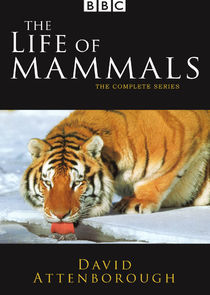|
David Attenborough meets the omnivores - the opportunists. When it comes to food, this diverse range of animals, which includes grizzly bears at one end and rats on the other, are so adaptable that they can always make the most of whatever happens to be around at the time. They are nature's generalists but each is equipped with some very specialised skills.North American raccoons use the same proportion of their brain for processing information from their hands as humans use for sight. Indeed, a raccoon's sense of touch is so acute that, in a way, they can see with their hands, making it easy for them to find food in murky streams at night.The rare and bizarre-looking babirusa from Sulawesi is equally capable at finding food but uses another part of its body - its nose. This pig's legendary sense of smell enables it to locate the smallest amount of fallen fruit in its dense forest habitat.Omnivores are able to exploit the most extraordinary opportunities, whether they be man-made or those found in the wild. In Texas, skunks descend into bat caves where the atmosphere is thick with ammonia and lethal fungal spores (and the carpet of flesh-eating beetle larvae) and, in the pitch blackness, they feed on baby bats that have fallen off the cave ceilings.And if there is no food, some omnivores are able to hibernate, like the raccoon dog, which can double its weight in five months of summer. It is a trick that is also taken up by one of the most impressive of all mammals, the grizzly bear. David gets close to these bears and follows their short season of plenty. He explains how they manage to gain enough weight to survive half a year without food.The story of the omnivores would not be complete without reference to the most successful of all, the humans. As an example of this success, David looks at the Kumbh Mela festival in central India. |
||
| Title: | Opportunists | |
| Air Date: | January 8, 2003 | |
| Runtime: | 60 min | |
| Genres: | Nature | |



grasshopper rex : With government waste being such a topical issue right now, I would have liked to see them...